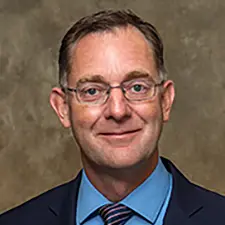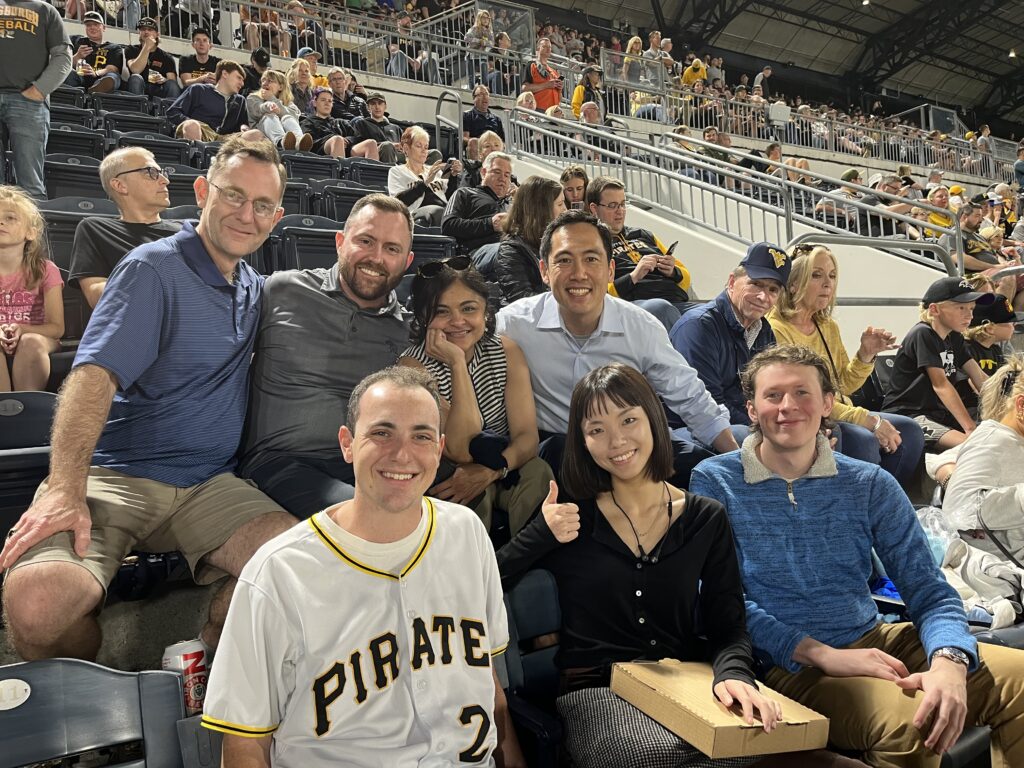The vision and contributions of our clinical advisors to help drive our product roadmap is absolutely crucial to our future growth. Their expertise and wealth of specialized knowledge is invaluable as we add capabilities to our InSight Platform®. Our shared commitment in providing innovative and powerful technologies to future healthcare professionals inspires our work. Michael Spooner, MD, FACC, one of our clinical advisors, took the time to sit down with us and share his thoughts on simulation technologies, and the value they add in training healthcare professionals.

Dr. Spooner began his journey by attending the United States Naval Academy with the goal of becoming a military physician. Following this, he went on to the University of Iowa to obtain his medical degree. This led Dr. Spooner to serve in the United States Navy as a Naval Flight Surgeon for 5 years. He served as the Director of Healthcare Simulation at the Naval Medical Center in Portsmouth, Virginia. During this time he also received his MBA. He retired from the Navy in 2020 and took over as the Director for Electrophysiology and Program Director for the Mercy One North Iowa Cardiovascular Fellowship in Mason City, Iowa.
We sat down with Dr. Spooner to better understand his role as a clinician and get his perspective on the role of technologies such as ours in the broader simulation industry. The first thing we wanted to know was why he enjoys the work that he does.
What is the most gratifying part of your profession?
“The ability to directly influence the quality of patient’s lives through the correction and treatment of heart rhythm disorders, as well as the remarkable ability to educate, influence and challenge the next generation of cardiologists as a Cardiology program director,” Dr. Spooner shared with us.
Dr. Spooner’s expertise and collaborations have enabled us to expand the curriculum within our InSight Platform to include cardiology related practices. He joined the Lumis® team with an abundance of knowledge on how these technologies are used in the medical field and within the military medical simulation. His deep involvement with the Society of Simulation in Healthcare gives him an invaluable vantage point as an educator that helps guide our product development efforts.
How do you use simulation for training in your field of work?
“During my time in the Navy, we utilized simulation for all aspects of healthcare training; military trauma team rehearsal, practitioner skills learning, and rehearsal in a hospital setting.” He shared that simulation technology was used to support all of their Graduate Medical Education programs. “Currently I utilize simulation on a monthly basis to train my Cardiology Fellows utilizing immersive high-fidelity simulations and task-training for mastery learning. I serve as Co-Chair of the American College of Cardiology’s (ACC) Simulation Workgroup working to develop and harness simulation technologies for the training of Cardiovascular professionals.“
Dr. Spooner believes that emerging simulation technologies that utilize AR/VR like our InSight Platform have the potential to provide scalable training solutions for realistic and hands-on practice across multiple specialties.
What is your perspective on emerging technologies like AR/VR in simulation?
“My belief is that these technologies have the unique ability to provide standardized immersive learning in a more ‘scalable’ fashion, especially in procedural skills. The scalability makes it particularly interesting to large professional organizations such as ACC, as it may be a new way to provide education across a larger landscape,” hypothesized Dr. Spooner.
Our InSight Platform is scalable, portable, and versatile. It can grow with any program as it expands allowing it to add both curriculum and advanced peripherals as needs evolve. Its modular nature makes it easily mobile and able to be used in multiple learning environments thus expanding its ability to switch from in-person to online to hybrid programs.
As simulation technologies are emerging in the growing market, Dr. Spooner explained to us how he keeps up with constantly evolving technology.
“The best way to keep up with simulation technology is to continue to engage with the simulation community; learning as new technologies become available. My primary means of engagement is through my attendance at the International Meeting for Simulation in Healthcare, as well as continuing to interact with the simulation community of practice as a member of the Society for Simulation in Healthcare’s (SSH) Board of Directors.”
How did you learn about Lumis and why did you join as an advisor?
“My SSH colleague Dr. John O’Donnell introduced me to Lumis a couple of years ago.” After being introduced to Lumis, by Dr. O’Donnell, one of our original founding faculty members, Dr. Spooner saw the potential benefits of the InSight Platform and using AR over VR.
“My belief in AR as a future means of training that provides some benefits over VR, especially specific to psychomotor skill development [is why I joined as an advisor]. Given cardiology is both a heavily cognitive and procedural-based field, I am attracted to learning technologies that allow a blending of these competencies. Additionally, much of medical practice is executed through team-based care. Augmented Reality through technologies like Lumis’ InSight Platform can allow manipulation of learning environments while also maintaining team interactions.”
The InSight Platform enables trainees to work and train together in a team-based setting, something they will have to get used to as they enter clinical practice. We have heard time and time again that team-based training is the cornerstone of medicine and fosters a collaborative work environment strengthening the communication skills necessary to be effective in high-pressure, real-life environments. Using our approach to AR, trainees can interact in a natural way without being encumbered by wearing headsets, facilitating non-verbal communication cues that are difficult or impossible to observe in AR or VR headset
What is unique about Lumis’ platform compared to the other technologies you have used?
“The InSight Platform is different from other AR technologies in that it has the ability to overlay an environment on any existing simulation manikin [task trainer, human, or surface],” Dr. Spooner shared with us. “This provides versatility with regard to the type of psychomotor/procedural training that is being provided. Additionally, not requiring the use of an individual “head-set” allows greater team-based interaction during the simulation.”

Many of the people we have interacted with at conferences, thought leaders in the industry, and our current customers, have expressed concerns around using headsets that are echoed in research literature. Outfitting an entire class of students or a simulation center with headsets becomes prohibitively expensive along with the added resources for maintenance and technical support. And while headsets provide benefits for didactic, task-oriented procedures, they do not cultivate the learning environment that clinical faculty find necessary for developing hands-on skills or team-based communication.
How can you see our technology being used to train future cardiologists?
“[I] have seen great success in utilizing simulation technology that allows a ‘simultaneous’ small-team executing a scenario while a larger audience looks in. The audience then can be involved in the scenario and provide feedback to the team. Subject matter experts can also provide meaningful real-time feedback. I believe Lumis could be utilized in this blending-learning setting.”
Team-based training is critical in preparing the next generation of professionals in a field that is inherently collaborative and cannot be practiced in isolation. Validation from experts like Dr. Spooner about our Platform’s capabilities that foster communication and coordination amongst trainees is gratifying.
Do you think technology is pivotal in training the next generations of healthcare professionals?

“I don’t think technology is a necessity for training, but I do believe technology provides many valuable enhancements. I think technology helps enhance healthcare education in four primary areas: it enhances dissemination, it enhances experience, it enhances interaction, and can enhance assessment. I believe the Lumis technology provides both versatility but also the ability to involve larger virtual or real-time audiences in team-based simulation,” Dr. Spooner told us. In the ever changing world we live in, technology, although not necessary, is enhancing the current training practices and proving to be worthwhile.
Dr. Spooner’s decades of experience and his journey from a military physician to a distinguished cardiologist combined with his experience as an educator provide a broad perspective that is crucial to evolving healthcare education.
His contributions to our team and our Platform have been pivotal thus far. As we continue to enhance our product to train the most essential workers in our workforce, we are grateful for the expertise and guidance offered by him and all of our clinical advisors.
